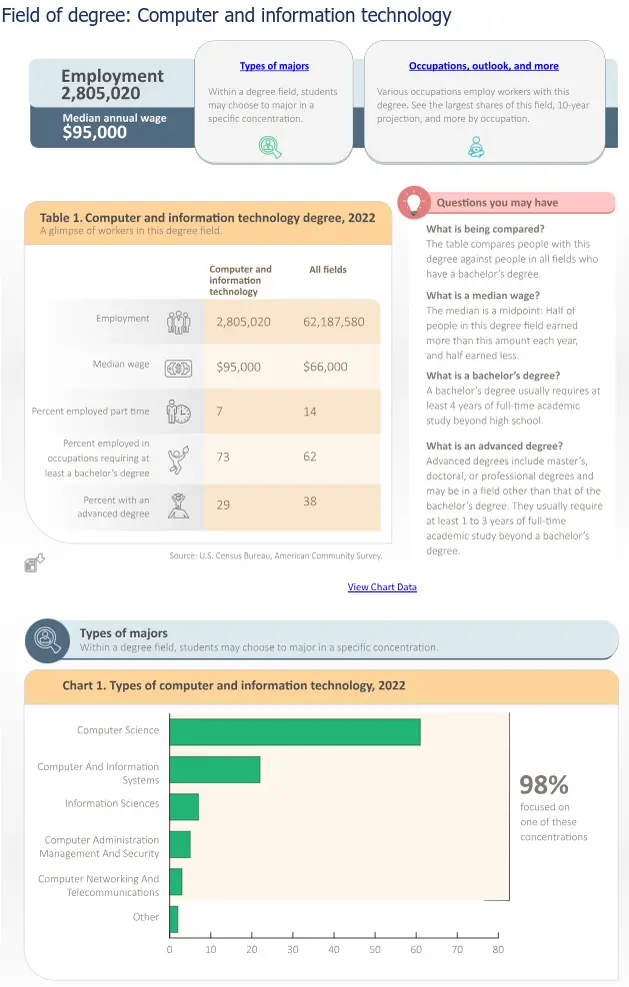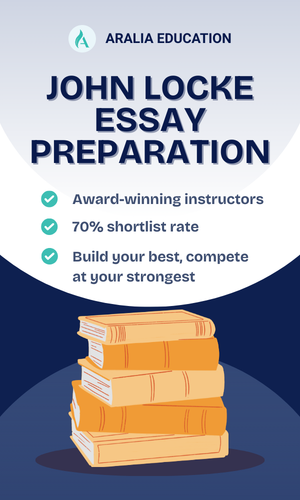85% of Aralia Students Place in Top Writing Competitions
Why Choosing the Right Major Matters
A college major is the academic discipline you’ll focus on during your undergraduate years. It shapes your coursework, skill development, and career path.
Unlike high school, where you study a broad range of subjects, college requires a deeper dive into specific fields. Picking the right major ensures your time, effort, and investment in college lead to long-term fulfillment and success. If you choose a field you don’t enjoy or haven’t researched thoroughly, studying it intensively can be tedious or difficult.
Flexibility in the U.S. College System
One of the advantages of studying at a U.S. college is the flexibility. Many universities allow students to declare a major in their second year, and switching majors is often possible with advisor approval. Students can also double major, pursue a minor, or specialize within a major (known as a concentration). This variety of options enables exploration and adjustment as students develop a deeper understanding of their interests. Let’s explore some relevant terms below:
- Changing Majors: Most U.S. universities allow students to change their major after enrollment. For example, you might apply as an economics major but later switch to math or computer science. Approval usually requires a discussion with your academic advisor and valid reasons for the change. Policies may vary by school; therefore, please check your university’s official website for specific requirements.
- Declaring a Major After Enrollment: Many U.S. colleges let students declare a major in their second year or after completing general education courses. This gives you time to explore different subjects before committing.
- Double Major: Most universities allow students to pursue two majors simultaneously. This is ideal if you’re passionate about multiple fields, but be aware that it may increase your course load and tuition costs.
- Minor: A minor is a secondary field of study, which may be related or unrelated to your major. For example, you can major in business administration and minor in psychology if you’re interested in understanding human behavior.
- Concentration: Many majors offer concentrations, which are specialized tracks within a broader field. For instance, a Marketing major can choose a concentration in digital marketing to focus on that niche area.
How to Choose the Right Major
U.S. News has released a guide to help students get started with choosing majors on the following bases:
- Based on Interests and Passions: Start by identifying what genuinely excites and motivates you. Think about the subjects, activities, or projects you’ve enjoyed most in school or during extracurriculars. For instance, if you enjoy business, consider majors like economics, marketing, or business administration.
- Based on Abilities: Your natural strengths and academic skills play a key role in determining which major suits you best. For example, if you’re interested in business but consistently excel in math and analytical reasoning, you may thrive in a more data-focused field like business analytics or finance.
- Based on Job Prospects: If you’re unsure about your exact interests or feel torn between multiple options, looking at job market trends can offer clarity. Consider choosing a major with strong employment growth and demand in the coming years. Fields like computer science, data analytics, nursing, and environmental science are in high demand and offer diverse career pathways.
- Based on Salary Potential: While passion is important, salary expectations can also be a practical factor in choosing a major. Some careers offer high starting salaries right after earning a bachelor’s degree, such as software engineering, actuarial science, and electrical engineering. Other high-paying professions like medicine, law, or academia may require years of graduate education.
- Based on Long-Term Growth: Consider your long-term plans after earning your bachelor’s degree. Do you want to enter the workforce immediately or pursue graduate studies? If you’re planning a research or academic career, choose majors with strong research opportunities, such as biotechnology or engineering. If you’re seeking career flexibility and high growth potential, STEM fields such as computer science or data science offer strong job prospects and are continually expanding across various industries.
Top 10 Highest-Paying Majors in the U.S. (Bachelor's Level)
| Major | Avg. Starting Salary | University |
| Applied Mathematics | $71,000 | University of California, Berkeley |
| Industrial Engineering | $71,200 | University of Michigan, Ann Arbor |
| Material Science & Engineering | $71,300 | Virginia Tech |
| Biomedical Engineering | $71,400 | California Polytechnic State University—San Luis Obispo |
| Chemical Engineering | $75,200 | Massachusetts Institute of Technology |
| Aerospace Engineering | $75,300 | California Polytechnic State University—San Luis Obispo |
| Electrical Engineering | $75,700 | University of California, Davis |
| Software Engineering | $75,900 | San Jose State University |
| Computer Science | $77,300 | Stanford University |
| Computer Engineering | $80,300 | University of California, San Diego |
Enroll in Aralia’s Comprehensive Courses
Top Trending Jobs in the U.S. (2023–2033)
The U.S. BLS has compiled a list of the fastest-growing and most in-demand occupations for the 2023–2033 period. Below are the careers from that list that require a bachelor’s degree.
- Data Scientist – $112,590
- Information Security Analyst – $124,910
- Health Services Manager – $117,960
- Operations Research Analyst – $91,290
- Actuary – $125,770
- Financial Examiner – $90,400
- Logistician – $80,880
Top Careers Requiring a Graduate Degree
- Nurse Practitioner – $132,050
- Computer Research Scientist – $140,910
- Physician Assistant – $133,260
According to the World Economic Forum (WEF)’s report on the future of work, careers related to information technology, especially artificial intelligence (AI) and machine learning, are experiencing significant growth in the U.S. and globally. In addition, WEF notes that roles such as sustainability specialist and business intelligence analyst are also on the rise. On the other hand, some professions are expected to decline sharply and may be entirely replaced by AI, including administrative or clerical jobs such as bank tellers or cashiers.
How to Know If a Major Fits You
Choosing a major is already a challenging task, but an even harder question for many students is: How do I know if the major I choose is truly right for me? Below are several ways to help you explore a major and evaluate whether it’s a good fit:
- Research the curriculum: The first step is to gather detailed information about the major you’re considering. Learn what subjects and topics are covered, the types of courses you’ll take, and the career paths typically associated with the degree. You can find this information on the official websites of universities by searching for keywords like “major + bachelor curriculum + university name” (e.g., “Computer Science Bachelor Curriculum Stanford University”). Additionally, you can explore labor market insights and job outlooks related to your field of interest using the S. BLS website. For example, BLS provides detailed data on computer and information technology occupations, including job growth, required education, and average salaries.

- Try Short-Term Courses: Many U.S. universities offer summer programs for high school students, lasting from a few weeks to several months. These programs allow you to experience college-level courses in your field of interest and evaluate whether the subject is a good fit. Additionally, platforms like Coursera and Khan Academy offer free or affordable introductory courses in subjects such as economics, history, math, statistics, and computer science.
- Take Career and Major Assessments: Several college planning platforms offer personality and career assessments that match your interests, skills, and values to potential college majors. Tools like College Compass from US News or Big Future from College Board are popular options for U.S. students.
- Join Research Projects: Participating in academic research is a valuable way to explore a field in-depth. It allows you to gain hands-on experience, develop problem-solving skills, and strengthen your college application with high-quality work.
- Enter Competitions: Similar to research, academic competitions provide real-world experience in your area of interest. Many competitions, such as the Diamond Challenge, mimic professional environments and require critical thinking, communication, and collaboration. These forums offer both insights and networking opportunities with peers who share your passion.
- Pursue High School Internships: Internships are one of the most effective ways to explore a specific career or industry. Many companies offer summer internships for high school students, giving you a realistic view of what working in a particular field is like.
- Talk to Mentors, Family, and Friends: Don’t hesitate to discuss your options with trusted people in your life, such as parents, friends, teachers, or academic advisors, who know your strengths, personality, and interests. Their perspectives may offer valuable insights and help guide your decision-making process.
Choosing a major is a big decision, but thanks to the U.S. college system’s flexibility, you’re not locked into your initial choice. You can change your major or even add a second one later. At Aralia, we encourage students not to stress too much about selecting a major immediately. Instead, focus on finding the right college and building a strong application through academic achievements, extracurricular activities, and compelling essays.








